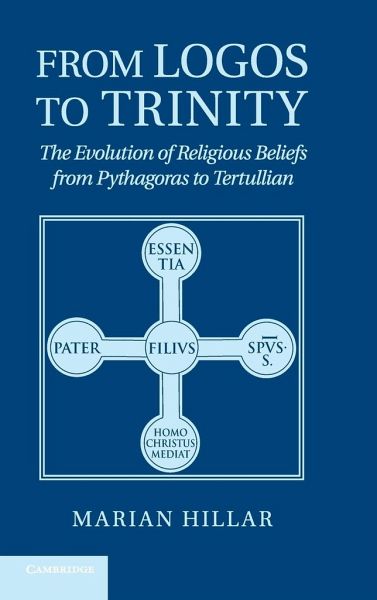
From Logos to Trinity
Versandkostenfrei!
Versandfertig in 1-2 Wochen
109,99 €
inkl. MwSt.
Weitere Ausgaben:

PAYBACK Punkte
55 °P sammeln!
A critical evaluation of the doctrine of the Trinity, tracing its development and investigating its intellectual, philosophical and theological background.



